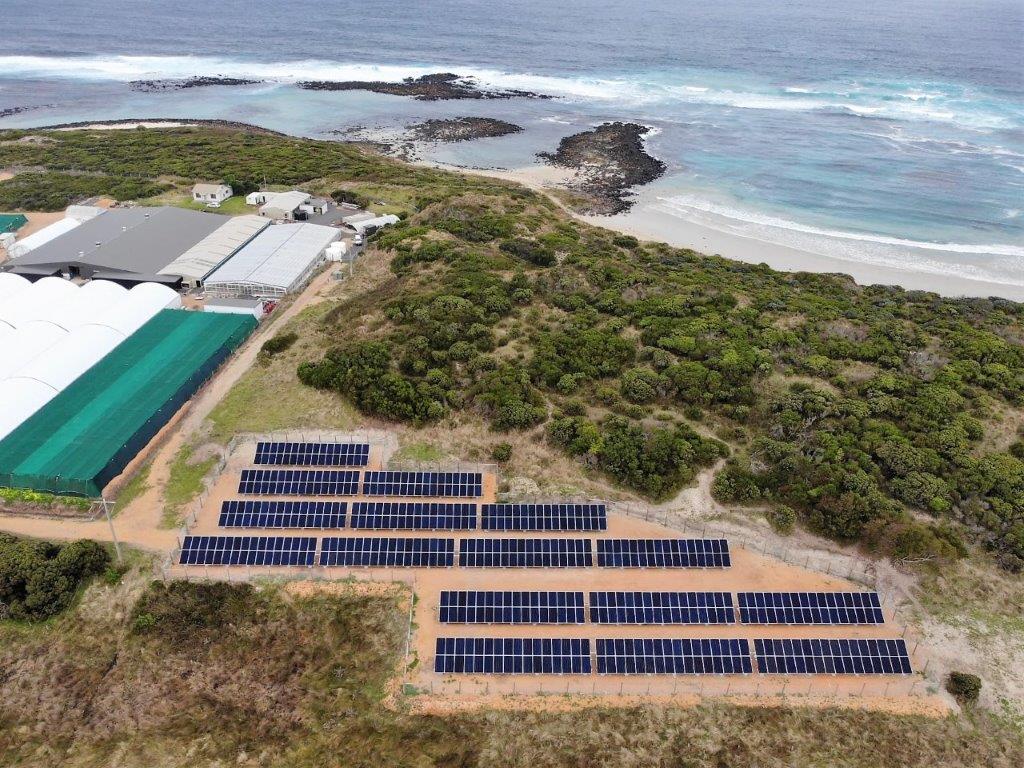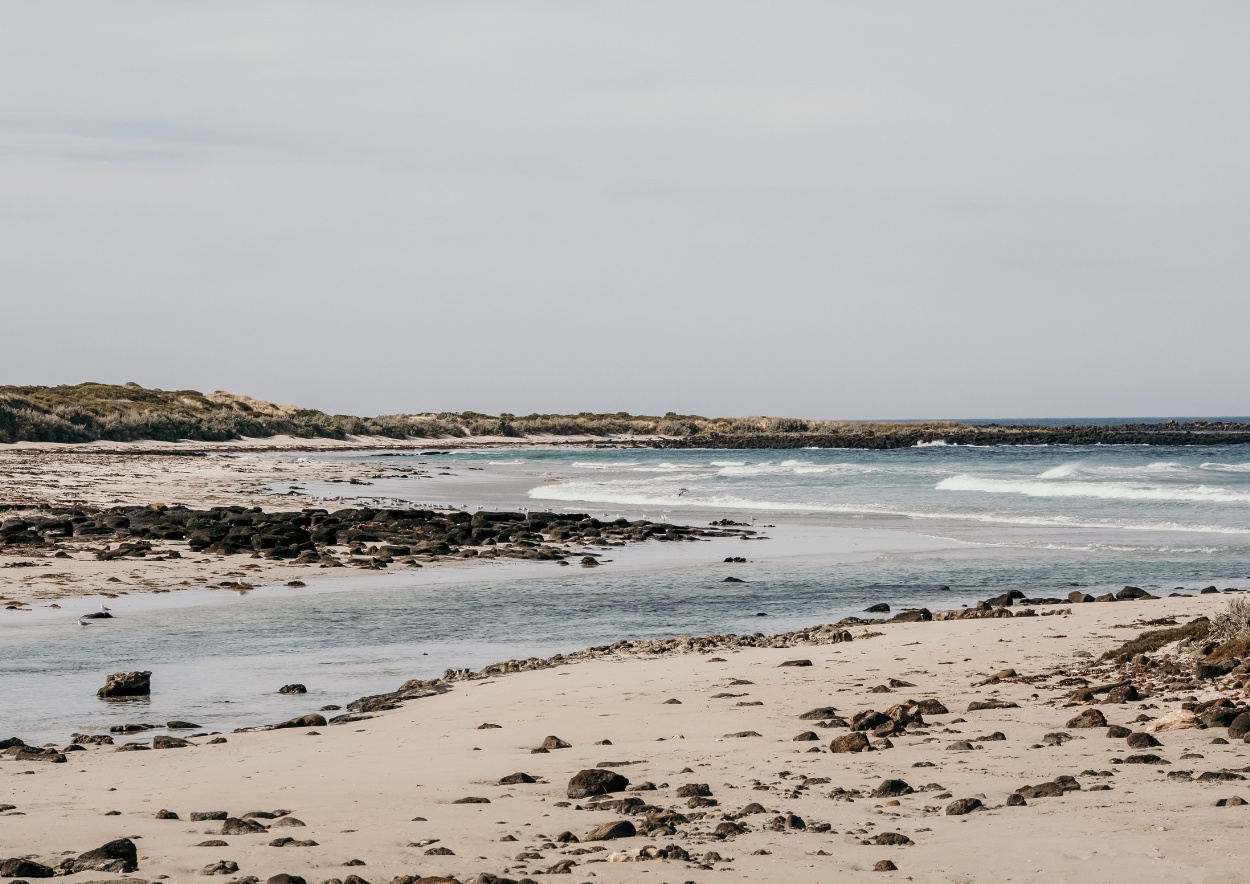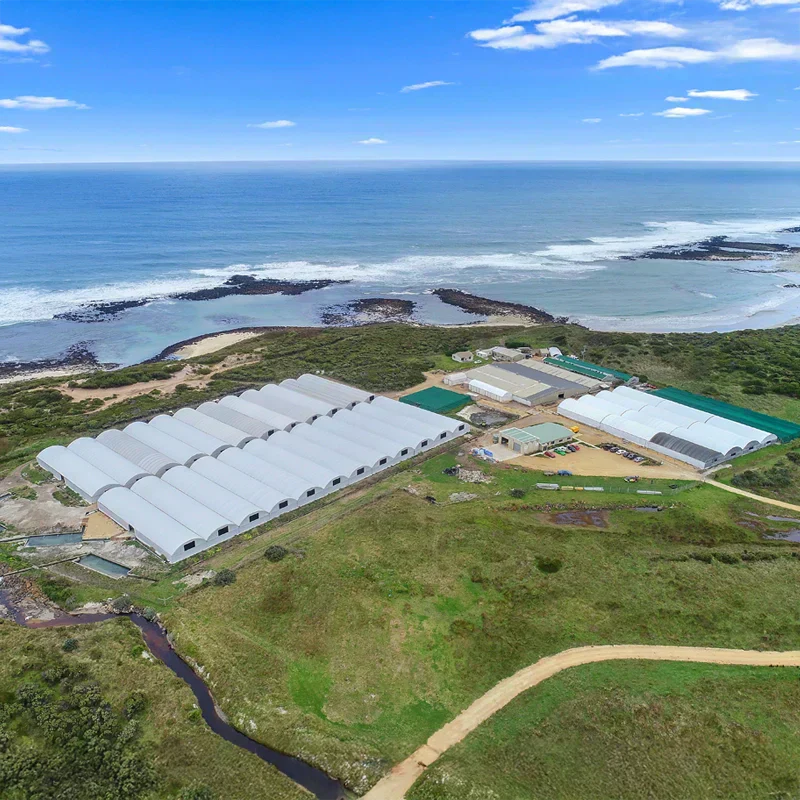Sustainable Farming Practices: Respecting Our Environment
As stewards of the Southern Ocean, sustainability is at the heart of everything we do. The vast, cold expanse of the Southern Ocean absorbs up to 40% of the world’s human generated carbon dioxide, making it crucial to Earth’s climate. Our farming practices reflect our deep respect for this vital ecosystem.
Our commitment to sustainability extends throughout our operations
Energy Efficiency and Renewable Power
In 2022, we installed a 200kW solar system that saves up to 332 tonnes of emissions per year. This significant investment in renewable energy is complemented by energy-efficient technologies throughout our farm, including heat pumps and heat exchangers in our nursery that provide the most energy efficient way to increase water temperatures.
Looking to the future, we’ve partnered with the Australian Ocean Energy Group as a member of Project AquaGrid, exploring the generation and storage of renewable ocean energy. If successful, wave or tidal energy generation in a hybrid microgrid will reduce our reliance on traditional grid-supplied coal-powered energy, bringing us closer to our goal of carbon neutrality by 2030.
Reducing Waste and Environmental Impact
Our innovative approach to sustainability extends to every aspect of our operations. We’ve modified reusable fish ‘bins’ with pumps and spray systems to keep our abalone comfortable and in top condition during transport, saving 5,000-7,000 polystyrene boxes each year.
Our farm’s geographical footprint is small compared to traditional agriculture, minimising our impact on the surrounding environment. We take active measures to protect the dunes and wildlife around us, with fencing and limited access to the beach and dunes ensuring native species are impacted as little as possible.
Water Quality and Marine Ecosystem
The water flowing through our farm is part of a carefully managed system that respects the natural rhythms and health of the marine environment. After circulating through our tanks, it flows into settlement ponds where solids, such as uneaten food and waste, naturally settle before returning to the sea. These ponds have evolved into mini ecosystems themselves, hosting bacteria, microorganisms, worms, seaweed, and other marine life that assist in breaking down nutrients, helping to ensure the returning water is clean.
We know ocean-based aquaculture can be a controversial topic. That’s why we’re transparent and proactive about our impact. Rather than placing additional pressure on declining wild abalone populations, our farm provides a more sustainable, consistent alternative. We don’t just say we’re doing the right thing; we prove it. We adhere to strict Environmental Protection Authority (EPA) guidelines and conduct quarterly independent testing of the outflowing water. These tests monitor key indicators like dissolved oxygen, ammonia, phosphorous, and suspended solids, ensuring our operations meet the highest environmental standards.
Our commitment to the health of the ocean is reflected in the rich diversity of marine life that thrives in and around our farm. From sea stars and elephant snails to anemones, octopuses, and visiting whales and dolphins, this vibrant ecosystem is a living testament to our responsibility and care.




Leave a comment
This site is protected by hCaptcha and the hCaptcha Privacy Policy and Terms of Service apply.